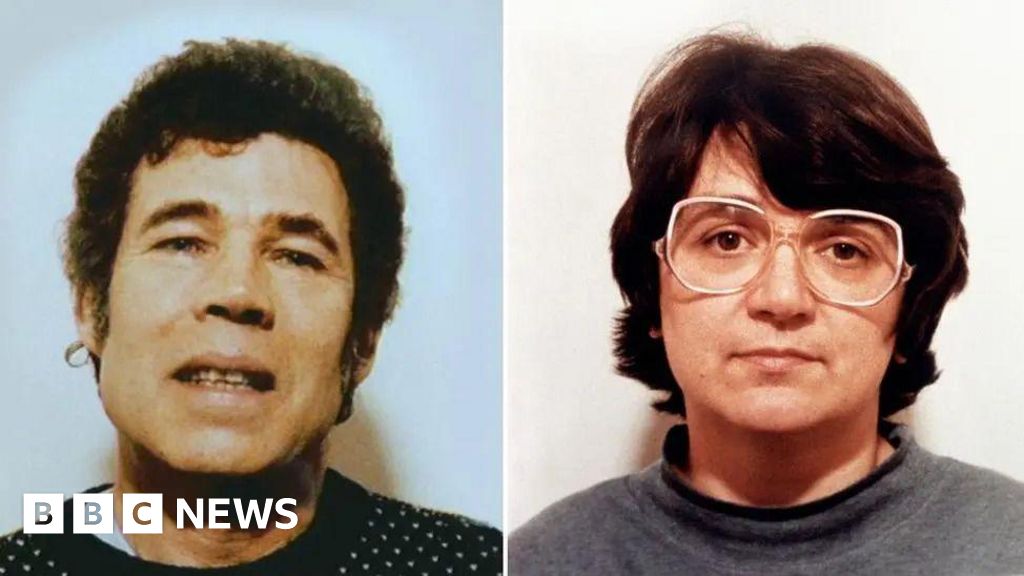A new documentary about serial killers Fred and Rose West will contain "previously unseen police video and unheard audio recordings", Netflix has said. Fred & Rose West: A British Horror Story will detail how they tortured, raped and murdered an unknown number of women in Gloucester between 1967 and 1987. The new documentary will be centred on the victims' families, and how Gloucestershire Constabulary uncovered the crimes. Netflix said the documentary would give "insight into the pain and torment" that the families "went through for decades". Rose West is currently serving a life sentence after being found guilty in 1995 of murdering 10 girls and women, which included her 16-year-old daughter Heather and her eight-year-old stepdaughter Charmaine. Fred West never stood trial as he took his own life in prison in January 1995 after nine sets of bones were found under the couple's house. The documentary series will begin with Fred West being questioned regarding Heather's disappearance, before her remains were discovered at their home in Cromwell Street, Gloucester. The series will also focus on the subsequent trial, and the search for bodies away from the West's home. An ITV documentary, Fred and Rose West: Reopened, released in 2021, found potential evidence that suggested 15-year-old Mary Bastholm could be buried in the cellar of what is now the Clean Plate café in Gloucester. When the documentary was released, a detective chief inspector claimed Fred Westwas thought to be involvedin her disappearance, as he had been a regular at the café, where Mary had worked as a waitress. However, Gloucestershire Constabularydid not uncover any human remainsin the cafe. Fred & Rose West: A British Horror Story will be released on Netflix on 14 May. Follow BBC Gloucestershire onFacebook,XandInstagram. Send your story ideas to us on email or viaWhatsApp on 0800 313 4630.
Fred and Rose West Netflix documentary to contain unseen police video
TruthLens AI Suggested Headline:
"New Netflix Documentary on Fred and Rose West Features Unseen Police Footage"
TruthLens AI Summary
Netflix is set to release a new documentary titled "Fred & Rose West: A British Horror Story," which will present previously unseen police videos and unheard audio recordings related to the infamous serial killers Fred and Rose West. This documentary aims to delve into the heinous crimes committed by the couple in Gloucester between 1967 and 1987, where they are believed to have tortured, raped, and murdered a significant number of women. A central focus of the documentary will be on the families of the victims, providing insight into the deep pain and suffering they endured for decades as the Gloucestershire Constabulary pieced together the horrific details of the Wests' crimes. Rose West remains incarcerated for her role in the murders, having been convicted in 1995 for killing ten girls and women, including her own daughter, Heather, and her stepdaughter, Charmaine. In contrast, Fred West took his own life in prison shortly after being arrested, following the discovery of human remains under their home.
The documentary will begin with Fred West being interrogated about the disappearance of his daughter Heather, whose remains were ultimately found at their residence in Cromwell Street, Gloucester. It will also cover the subsequent trial and the ongoing investigation to locate additional bodies linked to the couple's crimes. In a previous ITV documentary, "Fred and Rose West: Reopened," potential evidence suggested that 15-year-old Mary Bastholm might be buried in the cellar of a café where she had worked. Although Fred West was suspected of being involved in her disappearance, police investigations did not yield any human remains at the café. "Fred & Rose West: A British Horror Story" is scheduled to premiere on May 14, providing a comprehensive look at one of Britain's most notorious crime cases, alongside the lasting impact on the victims' families.
TruthLens AI Analysis
This Netflix documentary about Fred and Rose West aims to shed light on one of Britain's most notorious serial killer cases, focusing on previously unreleased police footage and audio recordings. The emphasis on victim families and the investigative process suggests an attempt to humanize the tragedy rather than sensationalize the crimes themselves.
Victim-Centric Narrative
The documentary's focus on the victims' families and their decades-long suffering indicates a shift toward restorative storytelling. By centering on the human cost rather than the killers' notoriety, Netflix may be trying to balance true-crime entertainment with ethical responsibility.
Historical Context and Public Interest
Given the West case's infamy, the release of unseen materials could reignite public discourse on institutional failures in policing and victim advocacy. The mention of Mary Bastholm's unresolved disappearance hints at lingering questions about the full extent of the Wests' crimes, which authorities may not have fully uncovered.
Potential Manipulative Elements
While the documentary appears fact-based, the use of "horror story" in the title leans into sensationalism, possibly to attract viewership. The timing of the release—following the 2021 ITV documentary—suggests a strategic effort to capitalize on renewed interest in cold-case investigations.
Credibility and Agenda
The involvement of BBC Gloucestershire in promoting the documentary lends credibility, as does the reliance on official police records. However, the lack of new forensic discoveries (e.g., the Clean Plate café excavation) raises questions about whether this project offers substantive revelations or merely repackages known facts for dramatic effect.
Target Audience and Societal Impact
True-crime enthusiasts and justice advocates are likely the primary audience. The documentary could spark debates about media ethics in profiling violent crimes, though its economic or political impact appears minimal.
AI and Narrative Influence
There’s no clear evidence of AI-driven manipulation in the reporting, but platforms like Netflix often use algorithmic insights to tailor content for engagement. If AI shaped the storytelling, it may have emphasized emotional beats (e.g., family trauma) to maximize viewer retention.
Conclusion
The documentary seems largely credible but risks exploiting trauma for entertainment. Its manipulative potential lies in dramatizing historical events without delivering new justice for victims.
